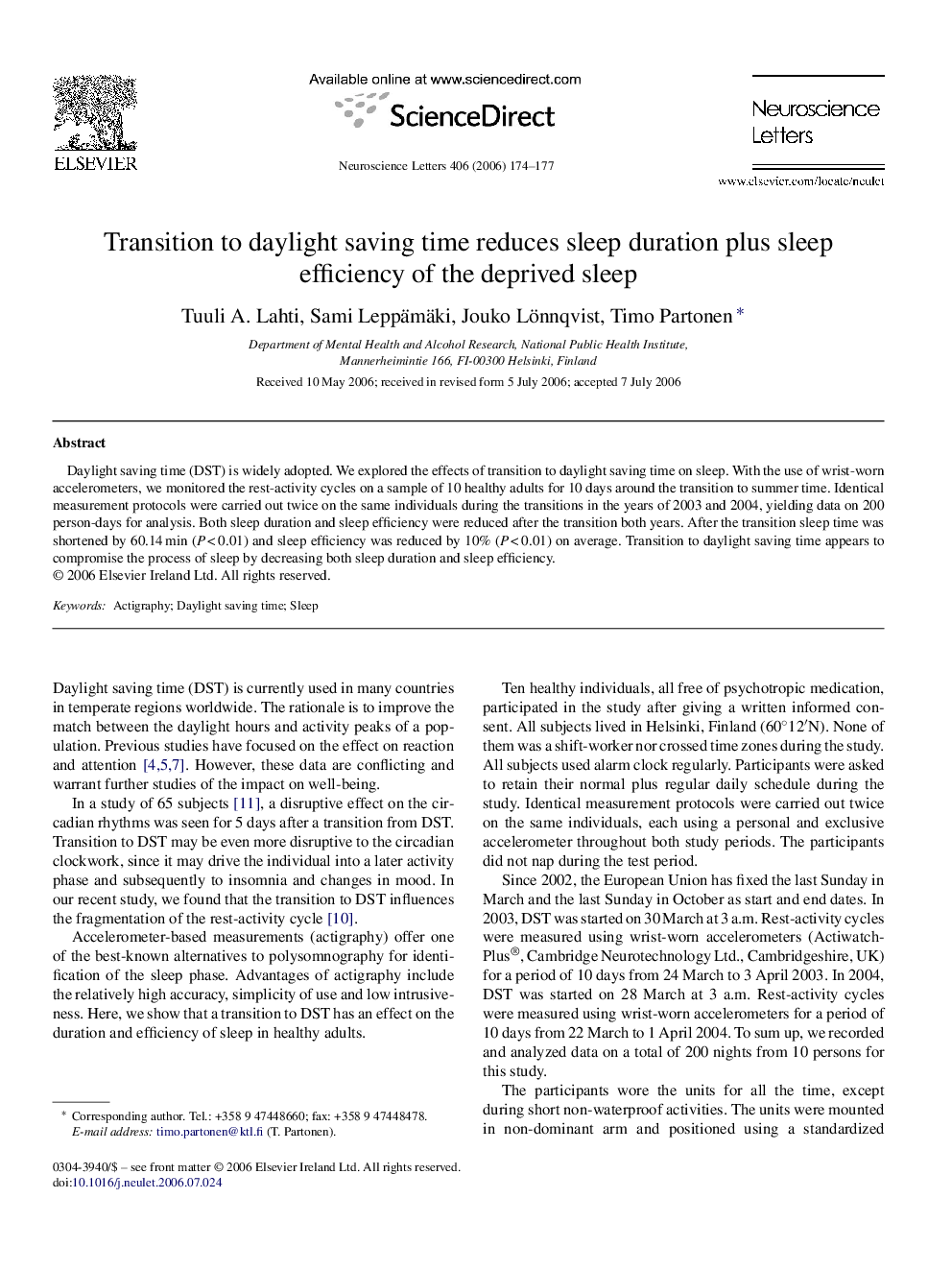| Article ID | Journal | Published Year | Pages | File Type |
|---|---|---|---|---|
| 4350485 | Neuroscience Letters | 2006 | 4 Pages |
Daylight saving time (DST) is widely adopted. We explored the effects of transition to daylight saving time on sleep. With the use of wrist-worn accelerometers, we monitored the rest-activity cycles on a sample of 10 healthy adults for 10 days around the transition to summer time. Identical measurement protocols were carried out twice on the same individuals during the transitions in the years of 2003 and 2004, yielding data on 200 person-days for analysis. Both sleep duration and sleep efficiency were reduced after the transition both years. After the transition sleep time was shortened by 60.14 min (P < 0.01) and sleep efficiency was reduced by 10% (P < 0.01) on average. Transition to daylight saving time appears to compromise the process of sleep by decreasing both sleep duration and sleep efficiency.
